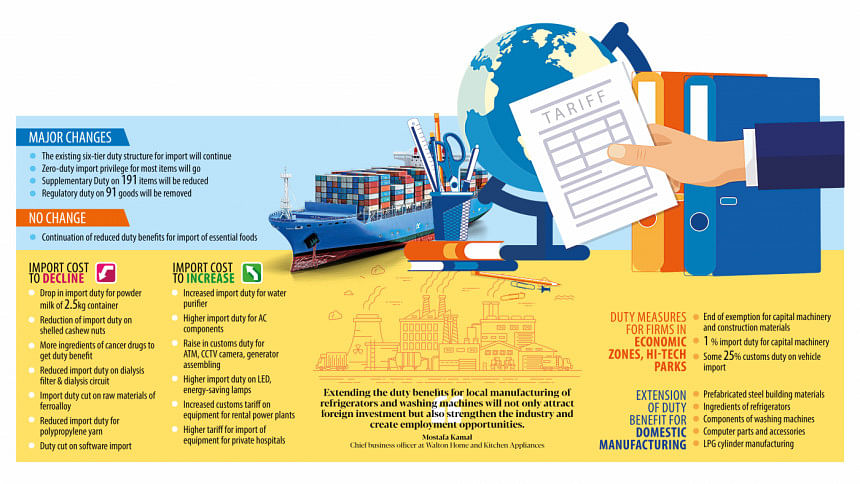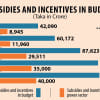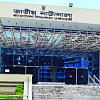Duty benefit for washing machines, refrigerators likely to stay

Manufacturers of washing machines, refrigerators and computers may keep enjoying the opportunity to import components used in their production at reduced tariffs for up to three years as the government plans to put an end to the exemption culture in phases.
In contrast, some sectors that currently qualify to purchase raw materials and intermediate items at concessional import duties are likely to face higher rates from the next fiscal year, which begins on July 1.
For air conditioner and refrigerator manufacturing industries, the government plans to extend the existing facility to June 2026, according to the finance ministry.
The National Board of Revenue (NBR), however, is considering raising the customs duty on the import of compressors used in making air conditioners and refrigerators to 10 percent in 2024-25 from 5 percent now.
In order to shield domestic compressor manufacturers from under-invoicing of the value of imported ones, the customs administration is expected to impose a minimum price for the devices procured from other countries.
Mostafa Kamal, chief business officer at Walton Home and Kitchen Appliances, said the duty benefit for home appliances such as washing machines and refrigerators will not only attract foreign investments but also bolster local manufacturing and create numerous jobs.
"Thanks to the benefit, local firms will be more interested in starting manufacturing to become more competitive. As a result, the price of the products will decrease. This will ultimately benefit the customers."
Finance ministry officials said the government may also extend the concessional duty benefit for the purchase of parts and components of mobile phones by two years to June 2026 from external sources to support their production locally. The current benefit expires on June 30.
Similarly, the manufacturers of computers may get until June 30, 2027, to import parts and accessories at concessional rates.
The revenue administration plans to extend the opportunity to import raw materials for prefabricated steel building ingredients to June 2026.
A senior official of the NBR said it plans to set a timeline for the concessional duty granted for the import of parts and ingredients to various items in order to allow local industries to elevate their capacity and prepare for the phase-out.
Currently, there is no such timeline for the duty benefit enjoyed by firms while buying raw materials from international suppliers.
Bangladesh will have to set duties in line with global rates once it graduates from the group of least-developed countries in 2026.
"We are considering fixing a timeline so that we can end the exemption culture. This is because certain sectors have thrived and it appears that they don't require support for a long period," said the official.
The NBR is also expected to reduce tariffs to 5 percent from the present 10 percent on the import of polypropylene yarn, a major ingredient used in carpets, to support the growth of carpet making.
Likewise, the import duty for water purification equipment manufacturing industries is likely to go up to 15 percent from 10 percent as the government looks to give protection to the growing industry.
In another move, the customs administration is likely to offer concessional duties to the import of components of CCTV (closed-circuit television) and automated teller machines until June 30, 2026. It, however, may propose raising the import duty to 5 percent in the coming fiscal year from the present 1 percent.
Similarly, the government wants to ensure support for the domestic ferroalloy manufacturing industry. Ferro alloys are used in refining during the production of rods, bars and angles.
Furthermore, the existing duty may halve to 5 percent for manganese, an essential raw material in the same sector.


 For all latest news, follow The Daily Star's Google News channel.
For all latest news, follow The Daily Star's Google News channel. 









Comments